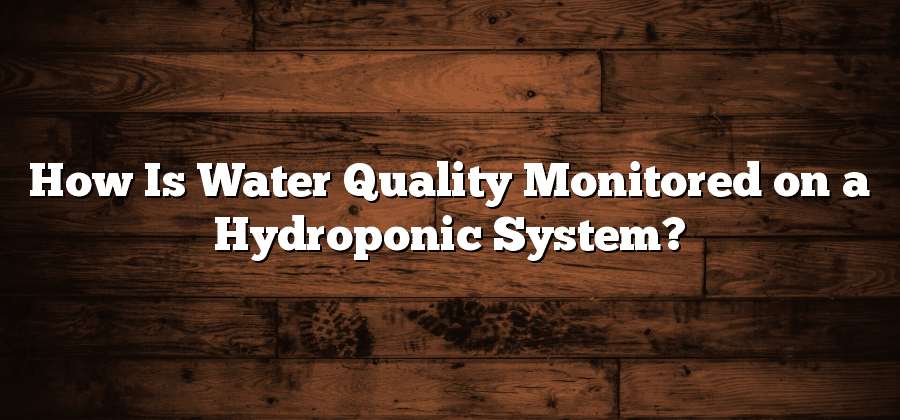Water Quality Standards for Hydroponics
Hydroponics, the soil-less method of growing plants using nutrient-rich water, requires strict adherence to water quality standards to ensure optimal plant growth and development. These standards are established to maintain the health and productivity of hydroponic systems, as well as to safeguard the quality of crops produced.
One key aspect of water quality standards in hydroponics is the pH level. pH stands for “potential of hydrogen” and measures the acidity or alkalinity of a solution. In hydroponics, it is crucial to maintain the pH level within a specific range to facilitate nutrient availability and uptake by plants. Deviations from the ideal pH can lead to nutrient imbalances, nutrient deficiencies, or toxicities, ultimately hampering plant growth. Therefore, regular monitoring and adjustment of pH levels are essential in meeting the water quality standards for hydroponics.
Understanding the Importance of Water Quality
Hydroponics, a method of growing plants without soil, relies heavily on water as the primary medium for delivering essential nutrients. In this system, the quality of water plays a pivotal role in ensuring optimal plant growth and health. Therefore, it is crucial to understand the importance of water quality in hydroponics.
The quality of water used in hydroponics directly impacts the availability and absorption of nutrients by the plants. As the primary source of nutrients, water carries a responsibility of delivering them to the roots in a form that is readily accessible to the plants. **Impurities** in water, such as heavy metals, excessive salts, or harmful pathogens, can hinder nutrient uptake, leading to nutrient deficiencies or toxicity in plants. This can ultimately affect the growth, yield, and overall health of the hydroponic crop. Moreover, poor water quality can also increase the risk of introducing diseases or pests into the hydroponic system, potentially causing detrimental effects on the entire crop.
Key Indicators of Water Quality in Hydroponics
Water quality is a crucial aspect to consider in hydroponics. It directly affects the growth and productivity of plants, as well as the overall health of the system. Several key indicators can help determine water quality in hydroponics systems.
One important indicator is the pH level of the water. pH refers to the acidity or alkalinity of a substance, and in hydroponics, it should ideally range between 5.5 and 6.5 for most plants. When the pH deviates from this range, nutrient availability can be affected, leading to imbalances and potential deficiencies. This can negatively impact plant growth and development. Regular monitoring and adjusting of pH levels are essential to maintain optimal water quality in hydroponics systems.
Another critical indicator is the electrical conductivity (EC) of the water. EC measures the concentration of dissolved salts in the water and provides insights into nutrient availability. High EC levels can indicate excessive nutrient levels, leading to nutrient imbalances and potential toxicity. On the other hand, low EC levels may signify nutrient deficiencies. Monitoring and managing the EC levels through appropriate nutrient solutions are crucial for maintaining water quality in hydroponics systems.
Testing Methods for Monitoring Water Quality
One of the most critical aspects of maintaining optimal water quality in hydroponics systems is regular monitoring. By monitoring the water quality, growers can detect any potential issues before they become detrimental to the plants. There are several testing methods available that can provide valuable information about the water quality in hydroponics systems.
One commonly used method is the measurement of pH levels. pH is a measure of how acidic or alkaline the water is. In hydroponics, it is essential to maintain a specific pH range for optimum nutrient uptake by the plants. A pH testing kit or meter can be used to measure the pH level accurately. Adjustments to the pH can then be made by adding pH adjusters or pH up/down solutions to bring the water to the desired range. Monitoring the pH levels regularly helps maintain a stable environment for hydroponic crops.






